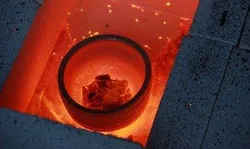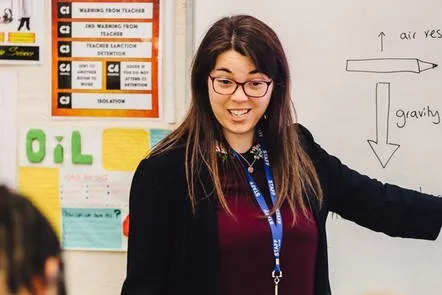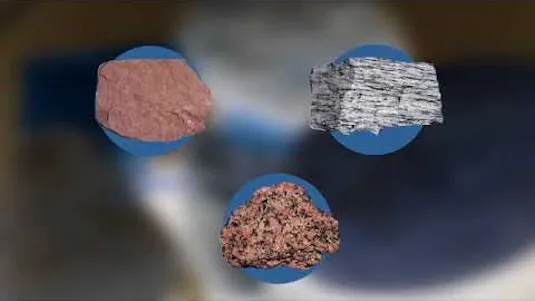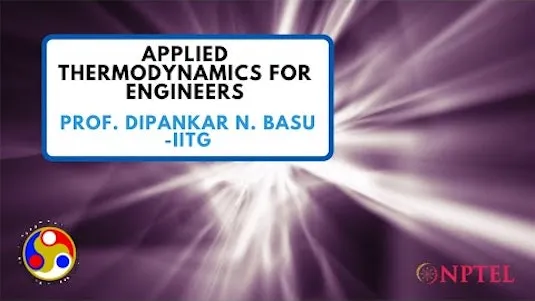
Energy and Thermodynamics 
This online course introduces students to the concept of energy and thermochemistry. It provides a foundation for understanding energy and its importance, as well as how chemistry can be used to improve energy efficiency and sustainability. Students will gain an understanding of the principles of energy and thermochemistry, and how they can be applied to real-world problems. ▼
ADVERTISEMENT
Course Feature
![]() Cost:
Cost:
Free
![]() Provider:
Provider:
Edx
![]() Certificate:
Certificate:
Paid Certification
![]() Language:
Language:
English
![]() Start Date:
Start Date:
Self paced
Course Overview
❗The content presented here is sourced directly from Edx platform. For comprehensive course details, including enrollment information, simply click on the 'Go to class' link on our website.
Updated in [March 06th, 2023]
1. You will gain a comprehensive understanding of energy, from its different types to its application in thermochemistry. You will learn about Newton’s Second Law of Thermodynamics, the Joule apparatus, energy release and consumption, and energy and power scales. You will also explore atoms, electrons, the nucleus, atomic mass, and molecular structure.
2. You will gain an understanding of how energy flows through an economic structure, including the consumption of fossil fuels, conservation of energy, and how to build a sustainable energy future.
3. You will be able to apply your knowledge to real-world scenarios, such as energy efficiency and sustainability. You will learn how chemistry can inform energy efficiencies and how to use energy in a modern setting.
4. You will be able to use the course materials to develop your own research projects and explore the topics in greater depth. You will have access to readings, videos, and case studies to help you gain a deeper understanding of the subject.
[Applications]
Upon completion of this course, students will be able to apply their knowledge of energy and thermochemistry to a variety of contexts. They will be able to analyze energy consumption and production, identify energy-efficient solutions, and develop strategies for sustainable energy use. Additionally, students will be able to apply their understanding of atoms and molecular structure to explain the behavior of matter and the transfer of energy.
[Career Paths]
1. Energy Engineer: Energy engineers are responsible for designing, developing, and implementing energy-efficient systems and technologies. They analyze energy usage and develop strategies to reduce energy consumption and costs. They also work to develop renewable energy sources and technologies. As the demand for renewable energy sources increases, the need for energy engineers is expected to grow.
2. Energy Analyst: Energy analysts are responsible for researching and analyzing energy data to identify trends and opportunities for improvement. They use their findings to develop strategies to reduce energy consumption and costs. They also work to develop renewable energy sources and technologies. As the demand for renewable energy sources increases, the need for energy analysts is expected to grow.
3. Renewable Energy Consultant: Renewable energy consultants are responsible for providing advice and guidance to clients on renewable energy sources and technologies. They analyze energy usage and develop strategies to reduce energy consumption and costs. They also work to develop renewable energy sources and technologies. As the demand for renewable energy sources increases, the need for renewable energy consultants is expected to grow.
4. Energy Efficiency Specialist: Energy efficiency specialists are responsible for identifying and implementing energy-efficient systems and technologies. They analyze energy usage and develop strategies to reduce energy consumption and costs. They also work to develop renewable energy sources and technologies. As the demand for renewable energy sources increases, the need for energy efficiency specialists is expected to grow.
[Education Paths]
1. Bachelor of Science in Energy and Thermodynamics: This degree program provides students with a comprehensive understanding of energy and thermodynamics, including the principles of energy conservation, energy efficiency, and sustainability. Students will learn about the different types of energy, the structure of atoms and molecules, and the relationship between energy, heat transfer, and work. This degree program also covers topics such as energy economics, energy policy, and energy technology.
2. Master of Science in Energy and Thermodynamics: This degree program builds on the foundational knowledge gained in a Bachelor of Science in Energy and Thermodynamics. Students will gain a deeper understanding of energy and thermodynamics, including the principles of energy conservation, energy efficiency, and sustainability. They will also learn about energy economics, energy policy, and energy technology. This degree program also covers topics such as renewable energy, energy storage, and energy systems.
3. Doctor of Philosophy in Energy and Thermodynamics: This degree program provides students with an advanced understanding of energy and thermodynamics. Students will gain a comprehensive knowledge of energy and thermodynamics, including the principles of energy conservation, energy efficiency, and sustainability. They will also learn about energy economics, energy policy, and energy technology. This degree program also covers topics such as renewable energy, energy storage, and energy systems.
4. Certificate in Energy and Thermodynamics: This certificate program provides students with a basic understanding of energy and thermodynamics. Students will learn about the different types of energy, the structure of atoms and molecules, and the relationship between energy, heat transfer, and work. This certificate program also covers topics such as energy economics, energy policy, and energy technology.
Course Provider

Provider Edx's Stats at AZClass
Discussion and Reviews
0.0 (Based on 0 reviews)
Explore Similar Online Courses

Implement DevOps in Google Cloud

Preparing for a PGCE

Python for Informatics: Exploring Information

Social Network Analysis

Introduction to Systematic Review and Meta-Analysis

The Analytics Edge

DCO042 - Python For Informatics

Causal Diagrams: Draw Your Assumptions Before Your Conclusions

Whole genome sequencing of bacterial genomes - tools and applications

Viscous Fluid Flow

Metamorphic Petrology & Thermodynamics

Applied Thermodynamics For Engineers
 Related Categories
Related Categories
 Popular Providers
Popular Providers
Quiz
 Submitted Sucessfully
Submitted Sucessfully
1. What is the main focus of the course Energy and Thermodynamics?
2. What is the Joule apparatus?
3. What is the relationship between energy, heat transfer, and work?
4. What is the Second Law of Thermodynamics?
Correct Answer: It states that the total entropy of an isolated system can never decrease over time.


Start your review of Energy and Thermodynamics